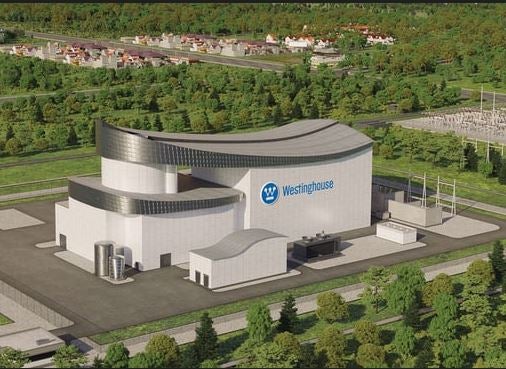Saskatchewan Power Corporation (SaskPower), Westinghouse Electric Company and Cameco Corporation have signed a memorandum of understanding (MOU) to consider the deployment of Westinghouse nuclear reactor technology in Saskatchewan and assess the case for a Saskatchewan-based nuclear supply chain to ensure the Canadian province’s energy security.
Under the MOU, the three companies will look at the technical and commercial pathways to use Westinghouse’s reactor technology, such as the advanced AP1000 reactor and AP300 small modular reactor (SMR).
There are currently four nuclear units using AP1000 technology in China and two AP1000 units operating at Plant Vogtle in Georgia, US. The 300MW AP300 SMR, meanwhile, has yet to be deployed but is based on the AP1000’s pressurised light water technology that has “demonstrated industry leading reliability”.
Saskatchewan’s Government is now looking to use the AP300 SMR, potentially becoming the first to deploy the company’s technology. In August last year, the Canadian Government approved up to C$74m ($55m) in federal funding for SMR development in the province.
SaskPower hopes to use Saskatchewan-produced uranium in any reactor constructed in the province and expects to make a final investment decision in 2029.
SaskPower president and CEO Rupen Pandya, said: “Leveraging knowledge from organisations that have significant expertise in the nuclear industry is critical to ensure we make responsible, informed decisions around our power future.”
Collaboration on nuclear fuel supply and evaluating various technologies "will only serve to enhance" the company's SMR development work and future planning, Pandya added.
In February, Westinghouse also signed an agreement to secure private financing for the deployment of four AP300 SMRs in the North Teeside region in the UK. It will work with Community Nuclear Power, the UK’s only independent SMR development company.
Despite significant support for SMRs from western governments, the technology has not yet been commercial deployed.
Even in Russia, where SMR output has been achieved (although by the state, not commercially), there have been construction issues. The reactor, based in the north-east of Russia, took more than 12.7 years to build, more than three-times the 3.7-year target.
Discussing the Russian case, Mycle Schneider, nuclear analyst and author of the annual World Nuclear Industry Status Reports, said that it “was not really the demonstration of easy, quick feasibility” that SMRs are supposed to be.









